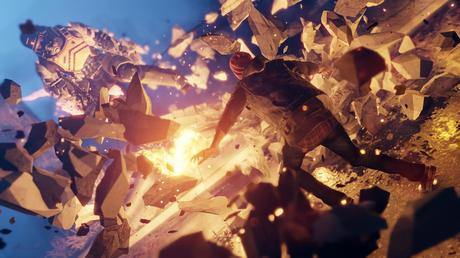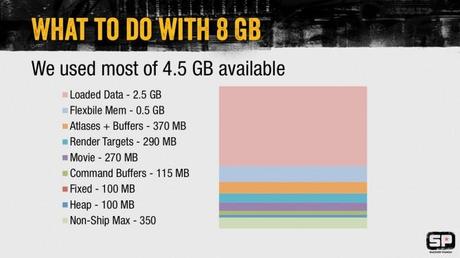
At the Games Developers Conference Sucker Punch Lead Engine Programmer Adam Bentley held a panel titled “inFAMOUS: Second Son Engine Postmortem” and the notes of the new version of the slides published today include some very interesting details about how the PS4′s hardware works and on how it was used for the open world title.
- The game has very large draw calls and object counts, but it wasn’t a problem.
- Having enough memory is “incredibly helpful” to make working on the game faster and simpler.
- The team came “close to the limit” of memory usage, but there are hundreds of MB of leeway left. They’re still coming up with useful ways to use the memory available on the console.

- The jobs are much more complex than they were in the previous inFAMOUS games.
- The CPU of the PS4 worked pretty well, but it’s still one of the main bottlenecks. It’s also less easy to optimize.
- There’s room for improvement in the job system using the CPU’s multiple threads and in other areas
- Material properties are stored in up to 8 gbuffers (5-6 plus depth/stencil), with 41 bytes written per pixel. That translates to 85 MB for full screen buffers. Bentley’s comment is that it’s “good that the PS4 has a huge amount of fast RAM.”
- Seattle is often overcast, so indirect diffuse lighting was very important, and ended up a bigger deal visually than initially thought. Lightmaps were considered, but discarded because they would have taken 12 MB per block just for the UVs, without even considering textures.
- Seattle is also often wet, so indirect specular lighting was just as important. Specular probes are 256×256 pixels and there are up to 256 of them at any given time. That’s roughly 175 MB of RAM used.
- The compute shader size for particles can be over 15 MB of loaded data in memory.
